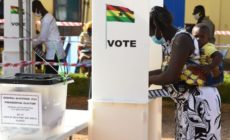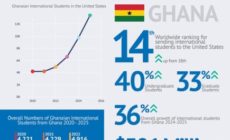Public debt of Ghana now GHC46.1 billion
- Posted on
- Comment
 The country’s public debt hit 46.1 billion Ghana cedis as at the end of September this year.
The country’s public debt hit 46.1 billion Ghana cedis as at the end of September this year.
The amount constitutes about 54 percent of the total value of the economy and experts believe the trend is unsustainable.
They argue the debt level is inching closer the critical 60 percent mark, an IMF and World Bank benchmark for classifying a country’s debt stock as dangerously high.
The figure which was put out by the Central Bank last week also showed that government has in one month added 2.2 billion Ghana cedis to the public debt.
The total public sector debt is made up of a domestic debt of 24.9 billion Ghana cedis, up from 18.5 billion in December 2012, and external debt stock of 10.8 billion dollars up from 8.8 billion as at the end of December.
But answering questions from Journalists at a meeting to review the health of the economy, Governor Dr. Kofi Wampah said the public debt has not reached levels that should raise any concern.
“Studies have shown that, even for Ghana, we will still be sustainable depending on what the debt is used for”, he noted.
He said part of the three billion dollar loan from the China Development Bank (CDB), which would be used to expand the country’s gas infrastructure, for instance, would yield positive results for the country’s economy.
Mr Wampah also indicated that the 2014 budget has policies that will address the country’s debt situation, expressing optimism in the econmy in 2014.
Figures from the Bank of Ghana have also shown that the government as at the end of September this year spent almost GHC8 billion more than revenues collected for 2013.
Meanwhile the Governor of the Bank of Ghana is optimistic the proposed review of the Foreign Exchange Act would help bring sanity to the currency market.
The regulator believes this would help with the application and enforcement of the law in the country .
In addition to this, the Bank of Ghana is planning to introduce a new set of foreign exchange regulations and code of conduct to guide operations of the foreign exchange market.
The Bank of Ghana is putting the rate of the local currency’s depreciation at 9 percent contrary to reports by some banks that the Cedi’s depreciation has hit almost 17 percent in the year.
-joyonline










 (Selorm) |
(Selorm) |  (Nana Kwesi)
(Nana Kwesi)